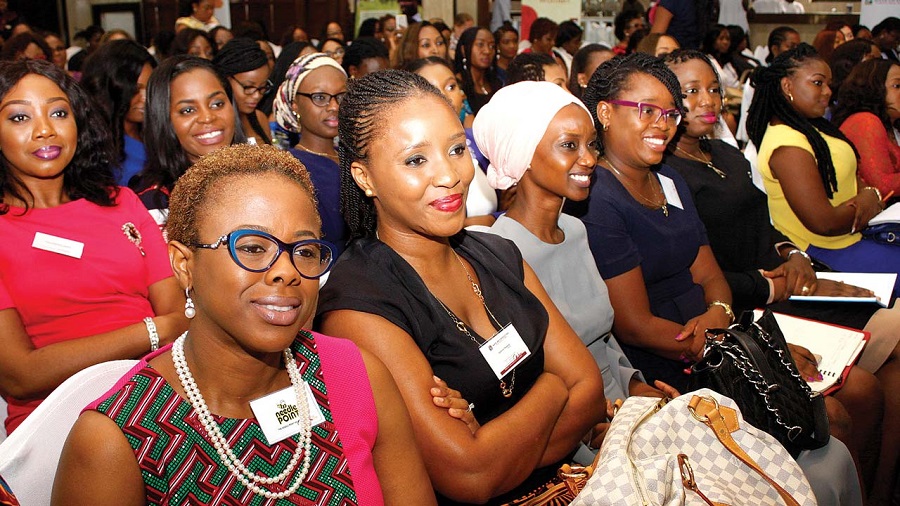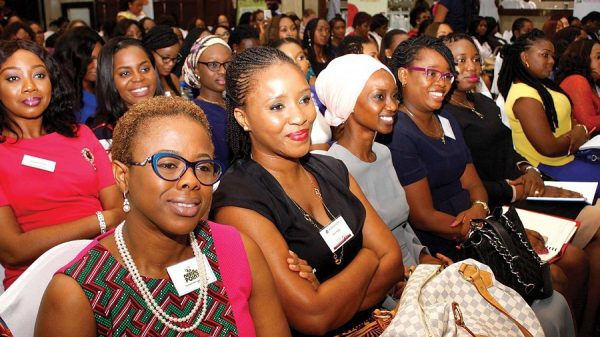Despite the numerous women’s support programs in Nigeria, a staggering 74% of women are unaware of these programs, according to a report by NOIPolls. That is to say, nearly 3 out of 4 women don’t know about resources that could potentially change their lives. These initiatives range from healthcare services to leadership workshops and financial aid. Interestingly, 99% of these same women believe these programs are crucial.
Read more about Opportunities
This lack of awareness hinders the effectiveness of these initiatives and prevents many women from accessing the help they need. When women know about these programs, more and more of them can access healthcare, boost their careers, and strengthen their financial standing. In this blog post, we will explore the possible reasons behind this awareness gap and propose strategies to make women’s support programs more visible and accessible to the targeted women.
Understanding the Awareness Gap
The NOIPolls report reveals a critical gap in the communication and outreach of women’s support programs. This gap can be attributed to several factors:
- Many support programs rely heavily on traditional media and word-of-mouth for publicity, which may not effectively reach a broad audience.
- Cultural norms and societal attitudes can restrict women’s access to information about support services.
- Rural areas often have less access to information and resources compared to urban centres.
Strategies to Increase Visibility
To address these challenges and bridge the awareness gap, a multifaceted approach is necessary. Here are some strategies that can help make women’s support programs more visible and accessible:
1. Leverage Digital Platforms
The rise of digital media platforms like Facebook, WhatsApp, and Instagram provides excellent opportunities to reach a wider audience. Organisers of these programs can leverage these platforms to create catchy, shareable content about the programs. Social media campaigns, eye-catching graphics, short videos, easy-to-understand infographics, targeted advertisements, and collaborations with influencers can raise awareness about women’s support programs. For instance, a campaign highlighting the success stories of women who have benefited from these programs in the past can inspire and inform others.
2. Community Engagement
Engaging local communities through town hall meetings, workshops, and seminars can help disseminate information more effectively. Community leaders and influencers can play a pivotal role in educating women about available resources. In these communities, implementing organisations can set up information booths, distribute flyers, or even organize short presentations about available programs. For example, UNICEF’s community-led initiatives in Nigeria have been successful in addressing issues like female genital mutilation (FGM) by involving local leaders and communities.
3. Partner with Local Influencers
Every community has its respected voices – be it a popular market woman, a beloved teacher, or a local celebrity. By partnering with these influencers, information about these programs can be spread through trusted channels. When familiar faces talk about these initiatives, people listen.
Sign up for the Connect Nigeria daily newsletter
In addition, implementing organisations can identify and train women from different communities to become ambassadors for these support programs. Equip them with the knowledge and materials to spread awareness in their local areas. Peer-to-peer information sharing can be incredibly effective.
4. Partnerships with NGOs, Corporates, and Religious Organisations
Collaborating with non-governmental organizations (NGOs), corporate entities, and religious organisations can enhance outreach efforts. Companies can use their platforms to promote awareness, while NGOs can provide on-the-ground support and resources. Religious organisations such as Churches and Mosques are perfect for sharing information.
Partnerships can also lead to funding and resources that amplify the reach of awareness campaigns.
5. Use of Local Languages and Traditional Media
To overcome language barriers, information about support programs should be made available in various local languages. This can be achieved through radio broadcasts, pamphlets, and community events that cater to non-English speaking populations.
Despite the digital revolution, good old radio and TV still hold sway in many Nigerian communities. Create jingles, sponsor informative segments, or even develop a regular show focusing on women’s empowerment programs. The key is consistency and using relatable, everyday language.
6. Mobile Outreach Units
Mobile outreach units or information vans that travel to remote and rural areas can provide information and services directly to women who might otherwise have no access. These units can offer educational materials, conduct workshops, help women sign up for relevant programs, and provide necessary technical support.
7. Create a Central Information Hub
Develop a user-friendly website or a simple SMS service where women can easily find information about all available support programs in their area. Make sure it’s accessible even on basic phones and in multiple languages.
8. Collaborate with Schools, Workplaces, and Existing Women’s Groups
Schools and workplaces are hubs where information spreads quickly. Partner with these institutions to distribute information about support programs. This could be through workshops, notice boards, or even as part of curriculum or training programs. There are also numerous women’s groups and associations across Nigeria. Partnering with these organizations can go a long way in helping to disseminate information about these support programs. They already have the trust and attention of their members.
Register to attend the CN Business Mixer
Concluding Thoughts
Bridging this awareness gap isn’t a one-time effort – it’s an ongoing process. As new programs emerge and existing ones evolve, the flow of information needs to be constant and adaptable.
Remember, awareness is just the first step. Once women know about these programs, they need easy ways to access them. This might mean simplifying application processes, providing transportation to program locations, or offering child care during training sessions.
By making these support programs visible and accessible, more and more women will get to know about these programs and soon the report will turn from 74% unawareness to 100% empowerment!
Got a suggestion? Contact us: [email protected]


